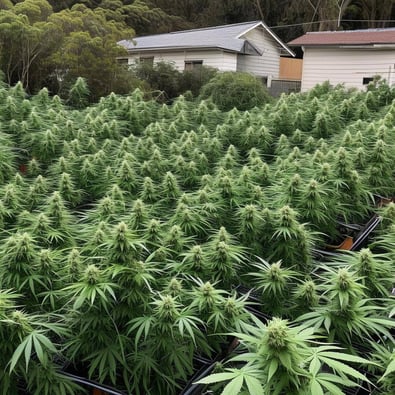The cannabis plant, native to Asia, has been used for thousands of years for both its medicinal and mind-altering properties. Despite U.S. prohibition pushing it into the shadows, cannabis cultivation and innovation have never stopped. Today, scientists are not just rediscovering cannabis—they’re decoding its genetic secrets to unlock powerful new benefits.
At the Salk Institute in San Diego, Professor Todd Michael has sequenced the genomes of 193 cannabis strains. He and his team are aiming to understand the full potential of the plant’s chemical makeup. “It’s an important crop that people have used for millennia, and we still know so little about it,” Michael explains. His findings suggest that cannabis has an incredible range of possibilities—especially when it comes to producing cannabinoids.
Cannabinoids are the chemical compounds in cannabis that affect the human body and mind. THC is the most well-known for its psychoactive effects, but there are many others, like CBD, CBG, CBC, and the increasingly popular THCV. These cannabinoids all stem from a shared molecular pathway, which scientists are now learning how to manipulate.
Some cannabinoids are non-psychoactive but interact powerfully with the human endocannabinoid system. CBD, for instance, has been shown to help control epileptic seizures and may reduce anxiety and chronic pain. UC San Diego recently studied CBD’s effects on boys with severe autism.
In the private sector, companies like Oregon-based Phylos Bioscience are leading the way in developing new cannabis varieties. Their Chief Scientific Officer, Alicia Holloway, highlights THCV—dubbed “diet weed” because it curbs appetite rather than increasing it. Phylos has bred a cannabis plant with 20% THCV and developed genetic markers to help identify high-THCV strains early in cultivation.
With the 2018 Farm Bill legalizing hemp production in the U.S., interest in cannabis research has exploded. Still, some scientists, like UCSD’s Igor Grant, caution against focusing too heavily on cannabis alone. Many plants have compounds that interact beneficially with the human body—cannabis may just be the most famous because of its mind-altering effects.
Yet Professor Michael believes cannabis is uniquely powerful. “It’s not just that we like to get high,” he says. “There’s an intimate relationship between this plant and our well-being.” He points out its ease of cultivation and high yield make it ideal not just for medicinal use but also for producing fiber, oil, and more.
As science continues to demystify cannabis, it’s becoming clear that this ancient plant may be a modern key to better health and sustainability.





